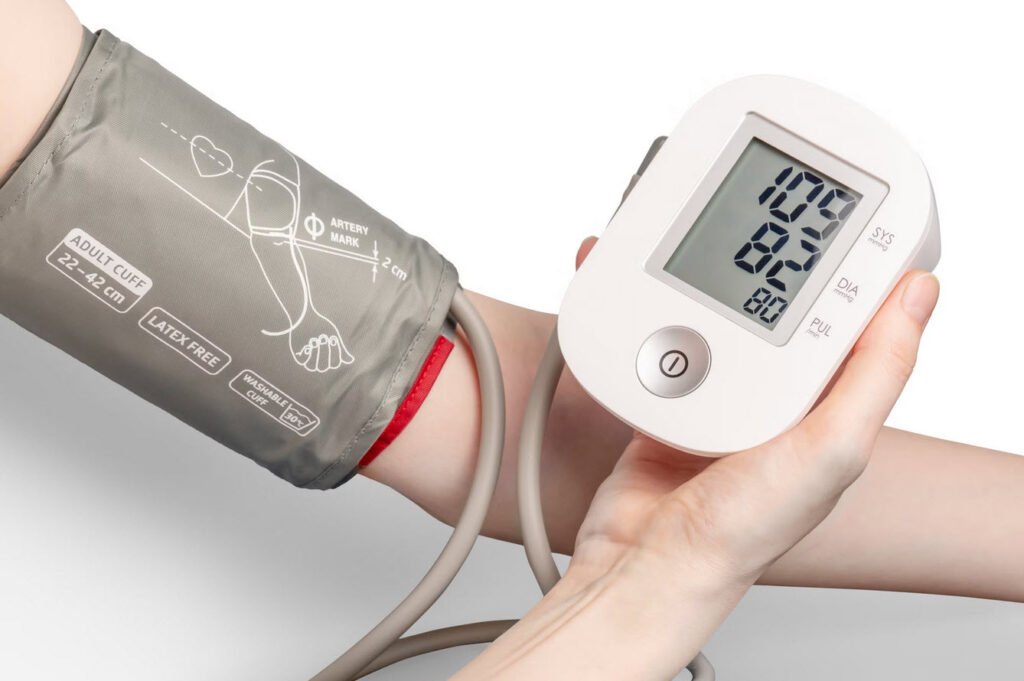Do you know someone who suffers from high blood pressure? Maybe even yourself? If so, here’s some good news!
There are simple and inexpensive ways to control blood pressure using food and supplements you might already have in your kitchen. Intelligent, health-conscious individuals like you can easily understand and implement these strategies to help maintain lower blood pressure levels.
When you follow these steps, you’ll not only feel more energized but also enjoy the numerous benefits of having a healthier blood pressure.
1. CoQ10 Supplements
CoEnzyme Q10, commonly known as CoQ10, is a powerful antioxidant found in every cell of your body. Your body uses CoQ10 to produce energy, and research shows it can significantly reduce blood pressure.
A study published in The Journal of Human Hypertension found that participants who took CoQ10 for just 8 weeks experienced a significant reduction in blood pressure.
Moreover, a University of Texas study revealed that people who took oral CoQ10 for one month not only saw significant blood pressure reductions, but 51% of them were able to discontinue their blood pressure medication. It’s worth noting that blood pressure medication can prevent your body from producing and absorbing CoQ10. The recommended dose is 100-200 mg gel caps each day.
2. Essential Vitamins, Herbs, and Antioxidants
Incorporating the following doctor-recommended daily amounts of vitamins, herbs, and antioxidants can help manage your blood pressure:
- Vitamin C: 1000 mg
- Garlic: 2 cloves
- Hawthorn Berry: 500 mg
- Omega-3 Fatty Acid (Fish Oil Gel Caps): 1000 mg
- Vitamin B6: Found in a natural multivitamin
- Magnesium: 500 mg
- Astragalus Root: 500 mg
3. Food Sources
The Mediterranean diet, rich in olive oil, fruits, and vegetables, has been associated with lower systolic and diastolic blood pressure, according to a Greek study involving 20,000 participants. Here are some foods that can help lower your blood pressure:
- Celery: 4 sticks a day can help relax the smooth muscles in your blood vessels.
- Fresh Cold-Water Fish: High in Omega-3 fatty acids, these fish are excellent for heart health.
4. Balance Sodium and Potassium
While it’s often recommended to reduce sodium intake, the real key lies in balancing sodium and potassium. High sodium intake alone doesn’t necessarily raise blood pressure; it’s the excess sodium-to-potassium ratio that does. Ideally, your diet should have five times as much potassium as sodium. Here’s how you can achieve this:
- Bananas: 1 large
- Avocados: 1 cup
- Beans: ½ cup
- Squash: 1 cup
- Tomatoes: ½ cup
5. Increase Magnesium Intake
Low magnesium levels can also contribute to high blood pressure. Incorporating magnesium-rich foods into your diet is essential. Here are some examples:
- Almonds: ⅓ cup
- Tofu: ½ cup
- Cashews: 1 cup
- Raisin Bran: ⅓ cup
6. Regular Physical Activity
Engaging in regular physical activity, such as brisk walking, cycling, or swimming, can help lower your blood pressure. Aim for at least 30 minutes of moderate exercise most days of the week.
7. Reduce Alcohol Intake
Limiting alcohol consumption is crucial for managing blood pressure. Drinking alcohol in moderation or not at all can prevent an increase in blood pressure.
8. Maintain a Healthy Weight
Being overweight or obese can increase your risk of developing high blood pressure. Losing even a small amount of weight can have a significant impact on lowering your blood pressure.
9. Reduce Stress Levels
Chronic stress is a major contributor to high blood pressure. Techniques such as meditation, deep breathing exercises, and yoga can help manage stress effectively.
10. Cut Back on Caffeine
While the effects of caffeine on blood pressure are still debated, reducing caffeine intake may help some people lower their blood pressure, especially if they are sensitive to it.
11. Eat Dark Chocolate
Dark chocolate, rich in flavonoids, has been shown to lower blood pressure. Choose dark chocolate with at least 70% cocoa and consume it in moderation.
12. Quit Smoking
Smoking increases blood pressure and damages blood vessels. Quitting smoking is one of the most effective ways to improve your overall cardiovascular health.
13. Get Quality Sleep
Poor sleep can contribute to high blood pressure. Aim for 7-8 hours of quality sleep each night to support healthy blood pressure levels.
14. Limit Sugar and Refined Carbs
Reducing your intake of sugar and refined carbohydrates can help lower your blood pressure. Opt for whole grains, fruits, and vegetables instead.
15. Monitor Your Blood Pressure Regularly
Keeping track of your blood pressure at home can help you and your doctor determine if your lifestyle changes are working.
16. Eat More Berries
Berries, particularly blueberries, are rich in antioxidants called anthocyanins, which have been linked to lower blood pressure.
17. Try Probiotics
Probiotics, found in yogurt and other fermented foods, may have a beneficial effect on blood pressure.
18. Drink Hibiscus Tea
Hibiscus tea is known for its ability to lower blood pressure. Drinking 3 cups a day may provide beneficial effects.
19. Limit Processed Foods
Processed foods are often high in sodium and unhealthy fats, both of which can contribute to high blood pressure. Opt for fresh, whole foods instead.
20. Stay Hydrated
Drinking plenty of water throughout the day is essential for maintaining healthy blood pressure levels. Dehydration can cause blood pressure to rise.
Conclusion
Understanding and following these natural, safe, and inexpensive techniques can significantly improve your blood pressure and overall health. Remember, these are proven steps that you can easily incorporate into your daily routine. By taking action now, you can safeguard yourself against high blood pressure and enjoy a healthier, more vibrant life.
So, why wait? Start today, and take control of your health!



